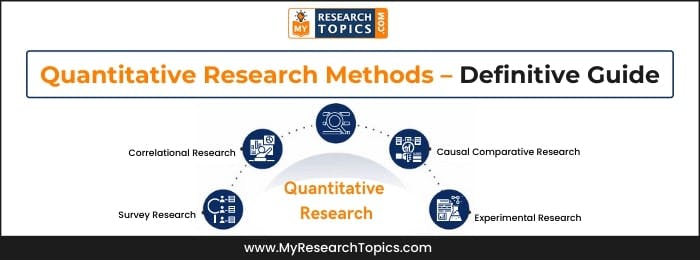What are Professional Doctorates?
Published 16 October, 2023
Professional doctorates are postgraduate degrees for experienced professionals who want to further their careers and improve their professional practice. They combine advanced academic study with practical research and typically take four years to complete.
In essence, a professional doctorate is an advanced academic degree that is designed to prepare students for careers in professional practice. Unlike traditional PhD programs, which are research-focused, professional doctorate programs emphasized the application of theory to real-world problems.
Students in professional doctorate programs are typically working professionals who want to improve their practice, rather than pursue an academic career. As such, professional doctorates are often seen as a more applied and practical alternative to traditional PhD programs.
There are several types of professional doctorates, each with its own focus and requirements. The most common type of professional doctorate is the Doctor of Business Administration (DBA), which is designed for business leaders who want to improve their organizations.
As you can see, professional doctorates are designed for experienced professionals who want to improve their careers and professional practice. If you are looking for an advanced degree that will help you in your career, a professional doctorate may be the right choice for you.
Doctorates in a variety of disciplines
Some common types of professional doctorates include:
- Doctor of Education (EdD): Designed for educators who want to improve their practice and advance their careers.
- Doctor of Psychology (PsyD): Designed for psychologists who want to provide direct patient care.
- Doctor of Public Health (DrPH): Designed for public health professionals who want to improve population health.
- Doctor of Social Work (DSW): Designed for social workers who want to improve their practice and help others.
- Doctorate of Biomedical Science (DBMS): Designed for biomedical scientists who want to improve patient care.
- Doctor of Clinical Psychology (DClinPsy): Designed for psychologists who want to provide direct patient care.
- Doctor of Health Psychology (DHealthPsy): Designed for psychologists who want to improve population health. The professional doctorate is a terminal degree, meaning it is the highest academic degree that can be earned in its field.
- Doctor of Engineering (EngD): Designed for engineers who want to improve their practice and solve complex problems.
- Doctor of Nursing Practice (DNP): Designed for nurses who want to improve patient care.
- Doctor of Veterinary Medicine (DVM): Designed for veterinarians who want to improve animal health. While professional doctorates are similar to traditional PhDs in many ways, there are some key differences.
- & many more…
Differences Between a PhD And Professional Doctorate
The main difference between a PhD and a professional doctorate is their focus. PhD programs are research-focused, while professional doctorates are designed for experienced professionals who want to improve their practice.
Another key difference is the time it takes to complete each degree. PhD programs typically take four to six years to complete, while professional doctorates usually take four years.
Professional doctorates are also known as terminal degrees, which means they are the highest academic degree that can be earned in their field. In contrast, PhD programs do not typically offer a terminal degree.
Professional doctorates are offered in a wide range of fields, including business, education, psychology, public health, social work, and engineering. PhD programs, on the other hand, are offered in a more limited range of fields, typically only those that are research-oriented.
Who are Professional Doctorates suited for?
Professional doctorates are designed for experienced professionals who want to improve their practice. They are offered in a wide range of fields, including business, education, psychology, public health, social work, and engineering.
A professional doctorate is suited for individuals who want to pursue a terminal degree in their field in order to elevate their status within their profession. Individuals with a professional doctorate are often able to command higher salaries and possess more ascended job titles than those without a terminal degree.
Professional doctorates also typically take less time to complete than traditional PhD programs, making them ideal for working professionals. Finally, professional doctorates often have a more applied focus than traditional degrees, meaning that students completing the degree will be better equipped to solve real-world problems in their field.
What does a Professional Doctorate involve?
The formatting of a doctorate can make all the difference in what kind of degree it is. Doctorates based on professional training and research require more subject-specific coursework than others, which helps define their credibility as well-rounded professionals with valuable skills to offer employers across various industries where they work full-time or part-time.
Despite this increased focus, many people who earned these types of degrees will still consider themselves ‘taught’ rather than unprofessional given how much classroom time was spent completing assignments during student’s undergraduate years.
You will learn about theoretical issues relevant to your professional context and reflect on how you may apply them to your own research project through the courses.
The last part of the professional doctorate is a thesis, which is usually between 50,000 and 80,000 words.
The professional doctorate is a more structured learning experience than the PhD. It includes lectures with deadlines and assignments that need to be completed by you or your team, as well as meeting other professionals in similar fields of study who can act like mentors throughout this process
The features offered make up for its lack of autonomy; some people might find these benefits counterintuitive but at least there’s someone else looking out after them.
Is a Professional Doctorate internationally recognised?
Yes, a professional doctorate degree obtained in the UK is recognised as an internationally-recognised qualification. Professional doctorates are highly respected and sought-after qualifications that demonstrate advanced skills and knowledge in a particular field or profession. They are typically awarded to professionals who have already achieved significant experience and expertise within their chosen field.
If you’re looking to pursue a professional doctorate degree, the UK is definitely a great place to do so! There are many world-class universities here that offer excellent doctoral programmes in a wide range of fields. And thanks to the British Council, you can be assured that your degree will be recognised and respected around the world.
How long does it take to complete a Professional Doctorate?
The length of time it takes to complete a professional doctorate is variable, depending on your chosen program and whether it’s part-time or full-time. A full-time Professional Doctorate will generally take 2 to 5 years, whereas a part-time program will usually last 3 to 8 years.
The average professional doctorate student is a working individual with many years of experience. As such, most will study part time whilst continuing their job; however there are exceptions to this like an EngD which predominantly lasts full-time and requires more focus on studying than other programs do because it could lead directly into becoming a teacher or research scientist in academia (i e not just industry).
In some cases, a professional degree can be attained as an online course. However not all universities offer this option and it may require relocation for study due to the distance factor involved with learning on the location.
Professional doctorates are also possible but only if you’re willing move abroad or live somewhere else temporarily while completing your homework assignments among other things like attending classes at night time–which often leads students back into spending more money than they would otherwise need because travel expenses will always arise when going overseas.
What are the requirements for earning a Professional Doctorate?
The requirements for earning a Professional Doctorate vary between each higher education institution hosting the programme. However, most professional doctorates require applicants to have completed an accredited Bachelor’s degree and/or Master’s degree in a relevant field of study, and to have several years of professional experience in their chosen field.
Most professional doctorate programmes also require applicants to submit a research proposal outlining their proposed doctoral research project. Some programmes may also require applicants to take part in an interview with the programme directors/staff.
Generally, professional doctorate degrees are designed for experienced professionals who wish to pursue advanced studies and conduct original research in their field of expertise. They provide an opportunity for learners to deepen their understanding of their profession and gain new skills that can be applied in their work.
Other Related Guides
- Research Project Questions
- Types of Validity in Research – Explained With Examples
- Schizophrenia Sample Research Paper
- Quantitative Research Methods – Definitive Guide
- Research Paper On Homelessness For College Students
- How to Study for Biology Final Examination
- Textual Analysis in Research / Methods of Analyzing Text
- A Guide to Start Research Process – Introduction, Procedure and Tips
- Research Findings – Objectives , Importance and Techniques
- Topic Sentences in Research Paper – Meaning, Parts, Importance, Procedure and Techniques












